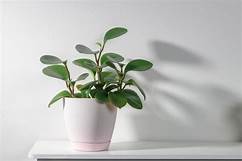Are Peperomia Toxic to Pets?
Peperomia plants are a popular choice for indoor gardening, known for their easy care and attractive foliage. However, pet owners may be concerned about the potential toxicity of these plants to their furry friends. In this article, we will explore the question of whether peperomia plants are toxic to pets and provide information to help pet owners make informed decisions about keeping these plants in their homes.

What Are Peperomia Plants?
Peperomia plants are a genus of flowering plants belonging to the Piperaceae family. These plants are native to tropical and subtropical regions of the Americas, Africa, and Asia. Peperomia plants are valued for their ornamental foliage, which comes in a wide range of shapes, sizes, and colors. Some popular species of peperomia plants include:
- Peperomia obtusifolia (Baby Rubber Plant)
- Peperomia caperata (Watermelon Peperomia)
- Peperomia rotundifolia (Coin-Leaf Peperomia)
- Peperomia polybotrya (Raindrop Peperomia)
- Peperomia scandens (Trailing Peperomia)
Are Peperomia Plants Toxic to Pets?
According to the American Society for the Prevention of Cruelty to Animals (ASPCA), peperomia plants are considered non-toxic to cats and dogs. This means that these plants do not pose a significant health risk to pets if ingested. However, it is important to note that all parts of the plant, including the leaves, stems, and flowers, can cause mild stomach upset if consumed in large quantities.
Symptoms of Peperomia Toxicity in Pets
While peperomia plants are generally considered non-toxic to pets, ingesting large amounts of the plant can cause some mild symptoms, including:
- Nausea
- Vomiting
- Diarrhea
- Abdominal pain
- Lethargy
Treatment for Peperomia Toxicity in Pets
If you suspect that your pet has ingested a peperomia plant, it is important to seek veterinary attention immediately. While the symptoms of peperomia toxicity are usually mild and self-limiting, your veterinarian can provide appropriate treatment to alleviate discomfort and prevent potential complications.
Preventing Peperomia Toxicity in Pets
The best way to prevent peperomia toxicity in pets is to keep the plants out of reach. Here are some tips to help keep your pets safe:
- Place peperomia plants on high shelves or in hanging baskets where your pet cannot reach them.
- Use pet-proof fencing or gates to block access to areas where peperomia plants are kept.
- Supervise your pet when they are in areas where peperomia plants are present.
- Teach your pet not to chew on plants.
Conclusion
Peperomia plants are generally considered non-toxic to cats and dogs. However, ingesting large amounts of the plant can cause mild stomach upset. To prevent peperomia toxicity in pets, it is important to keep the plants out of reach and supervise pets when they are in areas where these plants are present. If you suspect that your pet has ingested a peperomia plant, seek veterinary attention immediately.
Declaration: All article resources on this website, unless otherwise specified or labeled, are collected from online resources. If the content on this website infringes on the legitimate rights and interests of the original author, you can contact this website to delete it.



